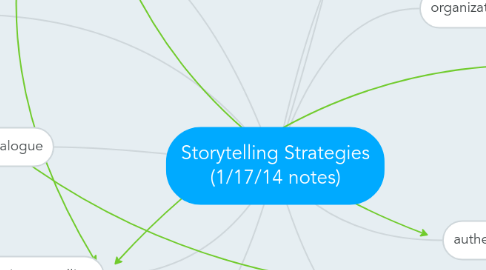Storytelling Strategies (1/17/14 notes)
von H. Lim


1. dialogue
1.1. direct vs indirect
1.2. quotation marks or not
1.3. more or less? effects?
2. showing vs. telling
2.1. explaining what the meaning of the story
2.2. letting the reader discover on their own
3. flow of time
3.1. chronological
3.2. out of order
3.2.1. what are the effects of having things out of order?
3.2.1.1. mimic process of memory
3.2.1.2. make certain things more jarring
3.2.1.3. leave the reader in suspense
3.2.1.4. give reader time to establish relationship with characters/text before telling a certain part of the story
4. goals/purpose/outcomes
4.1. therapy/processing for the author
4.2. remembering the dead/the past
4.3. anti-war statement
5. MAIN GOAL: making the reader feel/experience the "truth" of his experience
5.1. the horror of war
5.2. the fogginess/confusion of war
5.3. the love story
5.4. sense of anger/betrayal
5.5. how memory works
6. genre? type?
6.1. what type of story is it? what are the genre expectations/conventions?
7. style
7.1. clarity
7.2. insertion of "I" vs stepping back
7.3. repetition of words, images, characters
8. authenticy/truth
8.1. what is truth? factual truth vs felt/experienced truth
8.2. building a relationship with the reader--trust?
8.3. responsibility to the experiences of author people--is it okay to change their stories, reveal details about their lives?
9. organization/structure
9.1. choppiness/fragmentedness
9.1.1. sentence length
9.1.2. paragraph breaks
9.1.3. line breaks
9.1.4. section/chapter breaks
9.2. overall continuity
9.2.1. repetition
9.2.2. themes
9.2.3. overall narrative arc toward some sort of meaning?
